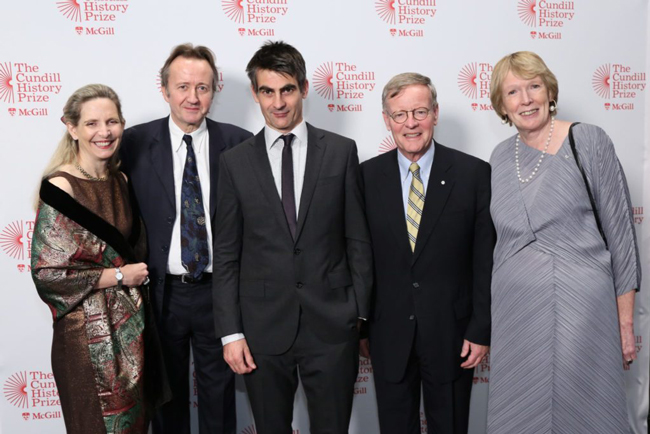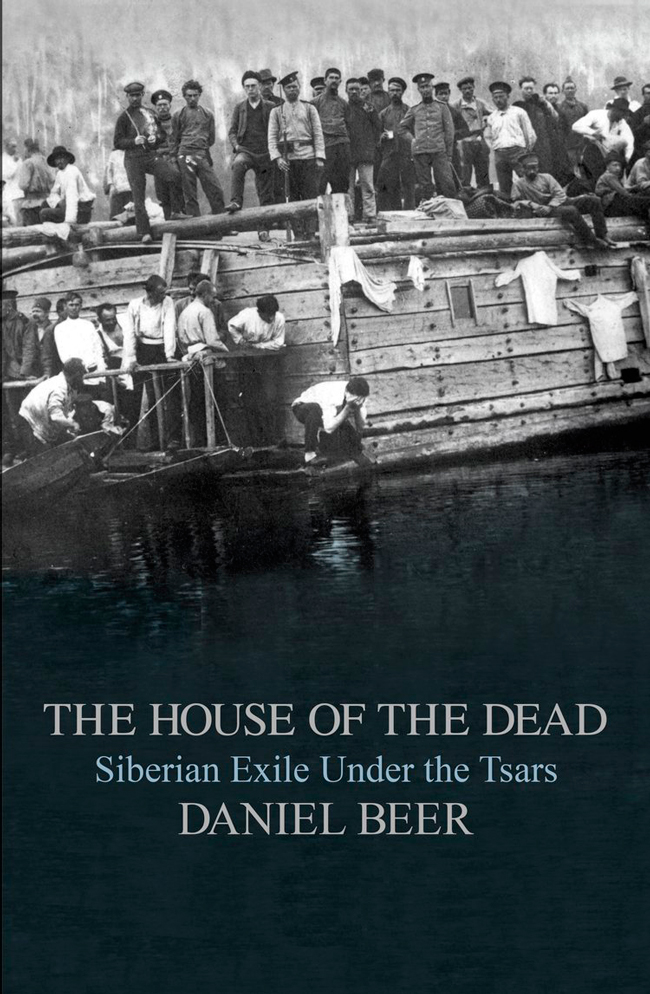
The international Cundill History Prize has announced British historian Daniel Beer as the 2017 winner of the US$75,000 prize – the richest in non-fiction for a single work in English. The London-based historian was awarded for his ground-breaking study of Siberian penal colonies, The House of the Dead: Siberian Exile Under the Tsars (Allen Lane).
Beer, who lectures at Royal Holloway, University of London, was chosen by the jury of world-class historians and authors over the US-based Austrian Walter Scheidel and the Université du Québec à Montréal professor Christopher Goscha. Margaret MacMillan, Chair of the Jury, made the announcement at the Cundill History Prize Gala at the Montreal Museum of Fine Arts.
Run by McGill, the international Cundill History Prize rewards the best history writing in English. Choosing from a record 300 submissions, the jury unanimously agreed that The House of the Dead stood above the formidable competition as a work of history that delivers exceptional scholarship in a relevant and accessible read.
“Daniel Beer has done extraordinary research, using underappreciated and unexamined sources, to show what exile meant to generations of Russians and other nationalities within the Russian Empire,” MacMillan said. “He gives a moving and heart-rending account of what happened to these people, most of whom never returned from Siberia. The House of the Dead is a haunting and important contribution to Russian history, and hugely deserving winner of the 2017 Cundill History Prize.”

Said juror Amanda Foreman, “Daniel Beer has a universality of approach that is both innovative and important. He tells the story of an immense tragedy, spanning hundreds of years. The House of the Dead uses a huge canvas, but Beer is able to bring out individual stories and a real sense of what it means to be human. This book is a triumph.’
Juror Roy Foster was equally effusive with his praise, saying The House of the Dead “reads like a tragic Russian novel, which is apposite since Dostoevsky and, indeed, Chekhov figure in the story of Siberia. The book shows the tragedy of the people who were sent marching east, and the extraordinary variety of the lives they made, and lost, there: Russian revolutionaries, Polish nationalists, and all sorts of felons and outcasts. While beautifully written, and a riveting read, it is quarried out of an extraordinary range of sources, hitherto unavailable, and is a work of great scholarship.”
The two runners up each received a Recognition of Excellence Award, together with US$10,000: Christopher Goscha was awarded for Vietnam: A New History (Basic Books), Walter Scheidel for his controversial economic thesis The Great Leveler: Violence and the History of Inequality from the Stone Age to the Twenty-First Century (Princeton University Press).
“The Cundill History Prize is given to a book that marks a particular excellence in the quality of history, and what I mean by that is ‘craft’; providing something for the writing and the study of history that shows a particular sort of ambition, scope and dedication,” said juror Rana Mitter. “Daniel Beer has combined meticulous use of archives with a gripping narrative drive. This is a book that shows the historian’s craft at the highest level.”
Juror Jeffrey Simpson added: “The Cundill History Prize looks for outstanding historical scholarship, but also accessibility: a reader who is not an expert should be able to read and understand the book it chooses. And the winner must teach us something we can profit from today, as we grapple with contemporary problems.”
Antonia Maioni, Dean of Arts, said: ‘At McGill, we value research-intensive history and, at the same time, the ability to communicate to the rest of the world the importance of history writing and an understanding of Canada’s role in the global setting. The Cundill History Prize plays a hugely important role – championing the highest quality historical scholarship from around the world, and rewarding books that can reach out to appeal to a wide audience, ignite conversation, and evoke a better understanding of ourselves and others.’
The House of the Dead has also been shortlisted for The Wolfson History Prize, The Pushkin House Russian Book Prize and the Longman History Today Prize, 2017.
